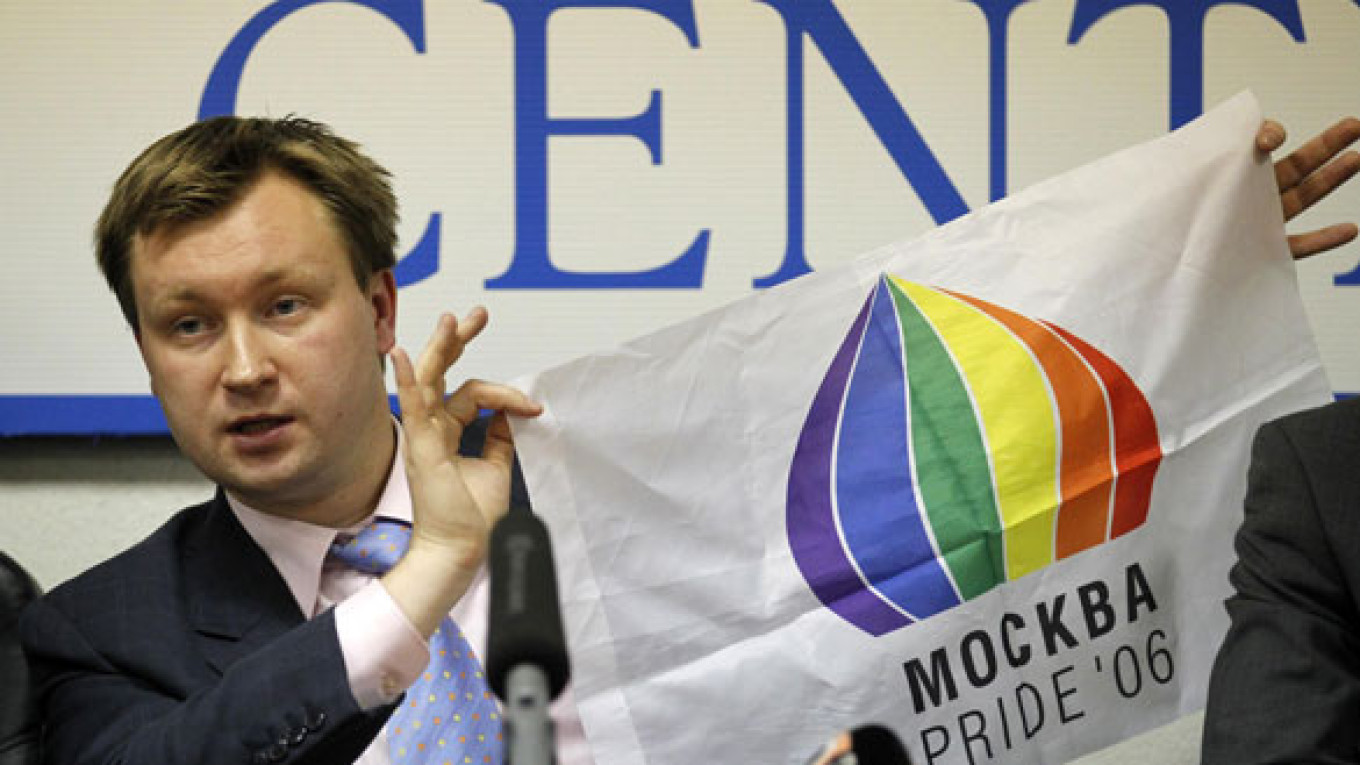The European Court of Human Rights said Thursday that it had fined Russia for banning homosexual parades in Moscow, marking a victory for the country's marginalized gay community.
Gay rights activist Nikolai Alexeyev had lodged three cases with the court arguing that Russia had violated the European Convention on Human Rights, to which it subscribes as a member state of the Council of Europe.
The Strasbourg-based court ruled that Russia had violated rights of assembly and had discriminated on grounds of sexual orientation. It ordered Russia to pay 29,510 euros ($41,090) to Alexeyev in damages and for legal fees.
For years, authorities denied gays permission to hold demonstrations on the grounds that they would cause a violent reaction in the country, where prejudice against gays runs deep.
"The mere risk of a demonstration creating a disturbance was not sufficient to justify its ban," the court said in a statement.
Demonstrators have sometimes been beaten by police during rallies. Former Mayor Yury Luzhkov called gay marches "satanic" and said the demonstrations would endanger public health and morality in Moscow.
"This is a crippling blow to Russian homophobia on all accounts," Alexeyev said in a statement after the verdict was announced.
The court also said the gay community's claims were not given a fair hearing in Russia, whose Constitution guarantees the right to hold demonstrations.
Alexeyev has said men connected to the authorities abducted him and pressured him to drop the cases.
President Dmitry Medvedev has promised repeatedly to usher in democratic ideals and policies, but rights activists and analysts say little has changed since he came to office two years ago.
Analysts are still awaiting signals over whether new Mayor Sergei Sobyanin, who was approved by lawmakers for the post Thursday, will take a softer line on gay rights.
A Message from The Moscow Times:
Dear readers,
We are facing unprecedented challenges. Russia's Prosecutor General's Office has designated The Moscow Times as an "undesirable" organization, criminalizing our work and putting our staff at risk of prosecution. This follows our earlier unjust labeling as a "foreign agent."
These actions are direct attempts to silence independent journalism in Russia. The authorities claim our work "discredits the decisions of the Russian leadership." We see things differently: we strive to provide accurate, unbiased reporting on Russia.
We, the journalists of The Moscow Times, refuse to be silenced. But to continue our work, we need your help.
Your support, no matter how small, makes a world of difference. If you can, please support us monthly starting from just $2. It's quick to set up, and every contribution makes a significant impact.
By supporting The Moscow Times, you're defending open, independent journalism in the face of repression. Thank you for standing with us.
Remind me later.


